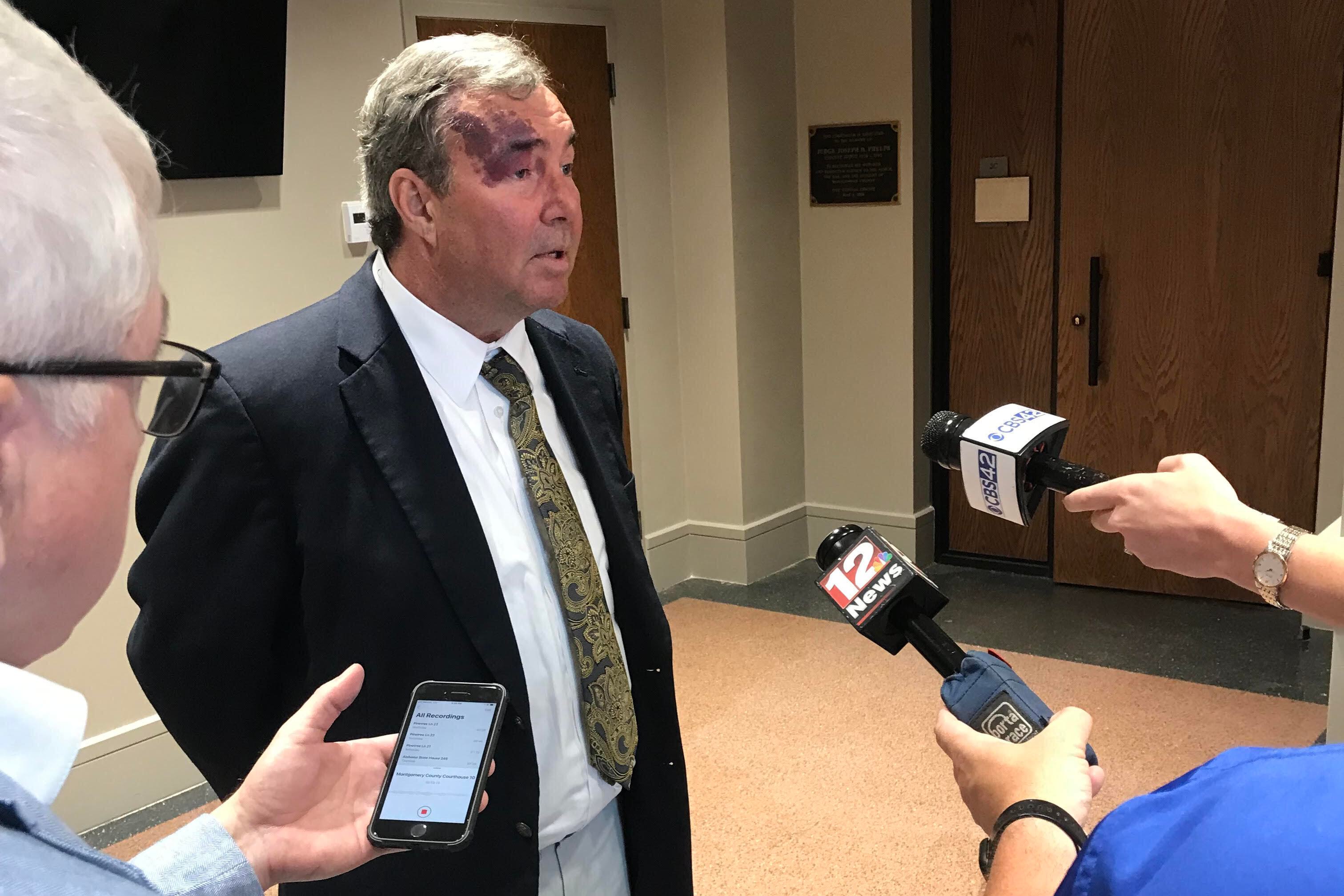MONTGOMERY — A resolution won't come anytime soon in the ongoing legal battle between the Alabama Medical Cannabis Commission (AMCC) and companies that weren't awarded a license in previous commission meetings over the summer.
At a court hearing on Wednesday, Montgomery County Circuit Judge James Anderson extended a temporary restraining order until the commission's next meeting on September 19.
What will be on the agenda for that meeting and the commission's path forward to awarding licenses will be negotiated in the interim by attorneys for the AMCC, companies who were awarded licenses and companies who weren't awarded licenses. Attorneys for all sides met privately during the hearing and after to begin negotiations.
William Somerville, an attorney for a company that didn't receive a license called Alabama Always, said, "There's probably going to be a third round of awards. There's a good hope that it's going to be done differently than it's been done before."
"That's something that we'll discuss, I think. I can't predict what's going to happen. I felt very encouraged that everybody seems to have that as their objective," Somerville told reporters after the court hearing on Wednesday.
Alabama Always and other companies that didn't receive a license from the commission are suing the AMCC over alleged Open Meetings Act violations for using an executive session at their August 10 meeting. AMCC attorneys deny the allegations. The commission initially awarded licenses in June but eventually voided those awards over concerns about "tabulation errors" in the scoring process to rank companies. The commission's second round of awards happened at the August 10 meeting.
AMCC Chair Rex Vaughn told reporters last week that the scores and evaluations used by AMCC to rank companies to award licenses wouldn't change.
"We'll not walk that back. We're not doing that all over again," Vaughn said. "The scoring will not change. The evaluations will not change. There may be a little more discussion among the commission members, but the scoring itself will not change. We're not having any more evaluators of that nature."
After the hearing, Will Webster, an attorney for AMCC, said, "We did talk some procedural things today about how this is going to work, how it might work, (and) some ideas that people have for the commission's consideration."
"We're encouraged that people are talking and maybe we can get this medical cannabis out for the people of Alabama quicker," Webster said.
Specialty Medical Products of Alabama CEO Ray French told reporters on Wednesday after the hearing, "We're hoping they're in the back room right now, and this time they're deciding to do site visits and to find out who has the capabilities of manufacturing, who is already working in Alabama, and who has the best chance of bringing this medicine to people."
"There's a lot of people that are wanting to buy these licenses just to sell or just because they want to operate here in Alabama and they're in other states," French said.
AMCC officials have previously said visiting the sites of all 90 applicants is unrealistic. Instead, AMCC was planning site visits for companies awarded licenses before the court issued a stay on proceedings.
Jim Barton, a spokesperson for a group made up of some companies awarded licenses by the commission, told 1819 News, "Concerning the court hearing today, the Alabama Medical Cannabis Industry Coalition understands Judge Anderson's attempt to have the losing applicants work out a solution with the AMCC regarding the Open Meetings Act litigation. However, the AMCIC is disappointed that the losing applicants continue to delay the rollout of medical cannabis to patients in Alabama by filing lawsuits based on technicalities."
"Further, the AMCIC does not understand why the losing applicants refuse to file investigative hearings to challenge their scores (as allowed under Alabama law and explained in the application guidelines here. From the outset of this entire process, the applicant guidelines provided detailed information to each applicant regarding how each phase of this process would work, including the appeals process for losing applicants," Barton said. "To date, no losing applicant that has filed a lawsuit has provided any evidence that the application process was flawed, irrational or unfair. Ninety applicants submitted applications, each of whom thought they should be awarded a license; frustration over not winning a license is not a valid reason to continue to file frivolous lawsuits to delay the entire process. Lastly, the AMCIC believes that the application process that the Alabama state legislature and AMCC devised is a fair, objective, third-party, blind-scored process which ensured a rational, logical and unbiased procedure to award licenses to best-in-class operators to move the medical cannabis industry forward for patients in Alabama."
To connect with the author of this story or to comment, email caleb.taylor@1819News.com.
Don't miss out! Subscribe to our newsletter and get our top stories every weekday morning.









